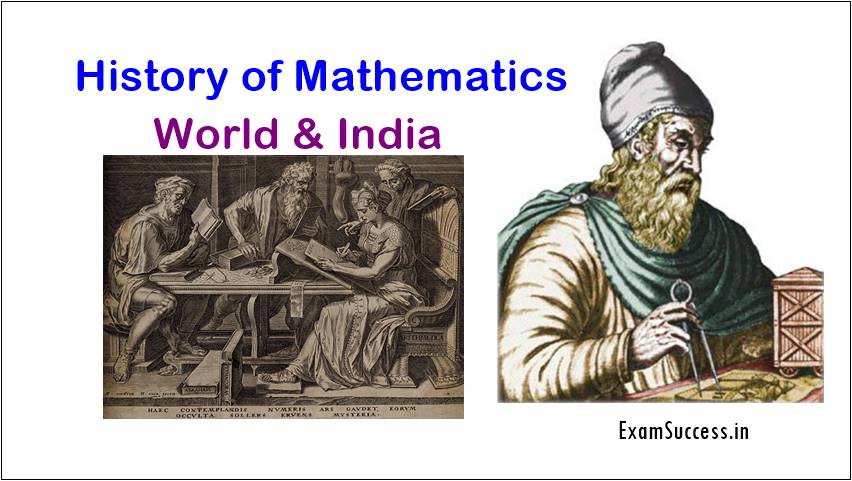Many brilliant minds have shaped the world of mathematics, but one name stands out above all: Archimedes of Syracuse.
Archimedes: The Father of Mathematics
Archimedes, born around 287 BCE in Syracuse, Greece, is known as the Father of Mathematics. He was not only a mathematician but also a physicist, inventor, and astronomer.
- His theories on geometry, levers, buoyancy, and measurement of shapes made him one of the greatest scientific minds in history.
- He was also the first to use accurate approximations of π (pi) and introduced methods that formed the basis of modern calculus.
- One of his most famous discoveries came while he was in a bath — when he realized how water displacement could measure volume. Excited by his discovery, he famously shouted “Eureka!” meaning “I have found it!
Who Invented Math?
Mathematics was not invented by one person but evolved over millennia across cultures. It developed over time, influenced by countless cultures and great minds over continents and centuries.
Major Milestones in the History of Mathematics
Ancient Civilizations:
- Sumerians: The Sumerians (c. 3500–2000 BCE) were among the first civilizations to develop a written numeral system and introduced the concept of place value. They used a sexagesimal (base-60) system, which laid the foundation for modern measurements of time (60 seconds = 1 minute) and angles (360° in a circle). Their numerical symbols were recorded on clay tablets using cuneiform script.
- The Egyptians(c. 3000–1000 BCE) pioneered practical geometry for land and architecture
- The ancient Egyptians developed practical geometry mainly for land measurement and construction.
- The annual flooding of the River Nile often erased field boundaries, so geometry was used to re-measure and mark farmland accurately.
- They could calculate areas of triangles, rectangles, and circles, and used geometric principles in constructing monumental structures like the pyramids.
- Babylonians(c. 2000–500 BCE) advanced algebra and astronomy, laying the foundation for modern mathematics and science.
- Chinese Mathematics: Formulated the decimal(base-10) and abacus systems, delved into number theory and algebra.
Classical Greece:
- Greek mathematicians such as Pythagoras, Thales, and most notably Euclid, established mathematics using axioms and logical demonstrations. Euclid’s Elements became the greatest geometry textbook the world had ever known.
India and the Islamic Golden Age:
Aryabhata (India): Zero, Trigonometry, and Algebra –
- Aryabhata (476–550 CE) was one of ancient India’s greatest mathematicians and astronomers.
- Aryabhata used a place-value notation system and introduced the concept of zero as a numeral, revolutionizing mathematical computation. Though the symbol “0” was fully developed later by Brahmagupta, Aryabhata’s use of placeholders in positional notation marked a key step in the evolution of zero.
- Algebraic Contributions:
- Aryabhata solved linear and quadratic equations, using methods similar to modern algebraic principles.
- He also discussed arithmetic and geometric progressions and provided rules for finding sums of series.
- His algebraic techniques influenced later scholars like Brahmagupta and Bhaskara II.
- Trigonometric Innovations:
- Aryabhata introduced trigonometric concepts such as sine (jya) and cosine (kojya), long before they appeared in Europe.
- He created tables of sines with remarkable accuracy and described relationships equivalent to modern trigonometric formulas.
- His trigonometry was used for astronomical calculations such as predicting eclipses and planetary positions.
Fathers of Mathematics in different branches
General / Classical Mathematics
- Pythagoras (Greece) – Father of Numbers
- Archimedes (Greece) – Father of Mathematics or Father of Geometry
- Euclid (Greece) – Father of Geometry
- Aryabhata (India) – Father of Indian Mathematics
Arithmetic & Algebra
- Diophantus (Greece) – Father of Algebra
- Al-Khwarizmi (Persia) – Father of Algebra (modern) and Algorithm
- Brahmagupta (India) – Father of Zero and Early Algebraic Concepts
Geometry
- Euclid (Greece) – Father of Geometry
- René Descartes (France) – Father of Analytic Geometry
- Apollonius of Perga (Greece) – Father of Conic Sections
Statistics & Probability
- Ronald A. Fisher (England) – Father of Modern Statistics
- Pierre-Simon Laplace (France) – Father of Probability Theory
- Karl Pearson (England) – Father of Mathematical Statistics
Calculus
- Isaac Newton (England) and Gottfried Wilhelm Leibniz (Germany) – Co-Fathers of Calculus
Mathematical Logic & Computer Mathematics
- George Boole (England) – Father of Mathematical Logic
- Alan Turing (England) – Father of Computer Science and Artificial Intelligence
- Gottlob Frege (Germany) – Father of Modern Logic
Trigonometry
- Hipparchus (Greece) – Father of Trigonometry
- Aryabhata (India) – Father of Indian Trigonometry
Astronomy & Mathematical Astronomy
- Nicolaus Copernicus (Poland) – Father of Modern Astronomy
- Claudius Ptolemy (Egypt/Rome) – Father of Ancient Astronomy
Number Theory
- Pierre de Fermat (France) – Father of Number Theory
- Carl Friedrich Gauss (Germany) – Prince/Father of Mathematicians
Applied Mathematics
- Leonhard Euler (Switzerland) – Father of Applied Mathematics
